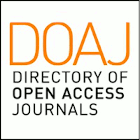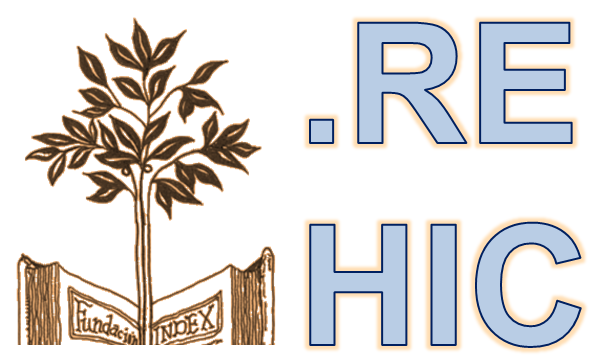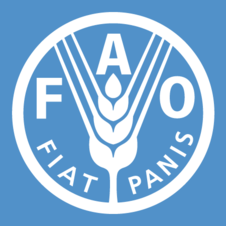FORMACIÓN NUTRIOLÓGICA EN UN PROGRAMA DE MEDICINA DESDE LA PERSPECTIVA DEL ESTUDIANTE
Abstract
La enseñanza de la Nutrición se imparte de manera breve y dispersa en los cursos de Medicina. No existe un curso formal que sintetice e integre dicho conocimiento. Conocer la percepción sobre la enseñanza de la Nutrición. Se aplicaron ocho preguntas a 60 estudiantes. Los criterios de inclusión: ser estudiante de medicina del tercer año y, haber cursado los casos clínicos de nutrición durante un semestre. El 100% señaló que era importante que se incluyeran temas de nutrición en el programa de Medicina, debido a la importancia en el proceso salud enfermedad. De este 100%, un 25% consideró que podría sustituir al nutriólogo con los conocimientos adquiridos. El 8% señaló que no le sería de utilidad el conocimiento al egresar, ya que la duración de los temas era muy corta. Las respuestas de los estudiantes pueden ser explicadas por el corto tiempo en el que tienen contacto con los casos clínicos de nutrición y esto lleva a dar poca importancia al aprendizaje de la nutrición. Otra razón, es la falta de estrategias que indiquen los conocimientos de nutrición que debe recibir el médico durante su formación y que evite una subestimación del rol del nutriólogo.
Abstract
Teaching of nutrition is giving in shortly way in medicine courses. It doesn´t exist a formal course for integrating this course. To understand the perception of students about nutrition education. A questionnaire was applied in 60 students, whose received nutritional clinic cases at third year of medicine degree. Inclusion criteria were: being a student of third year medical career to be student of medical carrier; having studied clinical cases of nutrition for a semester. 100% of students answered that are important nutritional issues during their medical career, the principal reasons were: promotes the teaching of nutritional care in population and a 25 % considered that with this knowledge they could replace to the nutritionist; 8% of students said they are not important nutritional knowledge. Finally, another percentage of students thought that not enough time spend to clinical cases of nutrition in their careers. These students' responses may be because clinical nutrition cases are short and why not come to give importance to the nutrition knowledge. Another reason is the lack of strategies that reflect that knowledge must be doctors and nutritionists, to avoid underestimating the role of the nutritionist.
Palabras clave: Estudiantes de medicina, enseñanza, nutrición, percepción
Downloads
References
Definición de medicina. WIKIPEDIA. Disponible en: http://es.wikipedia.org/wiki/Medicina
Ávila C. 1993. Hambre, Desnutrición y Sociedad. La Investigación epidemiológica de la desnutrición en México. Guadalajara, Jalisco, México. Guadalajara, Jal., editorial Universidad de Guadalajara, p. 53-72.
López S. 2003. Agenda para el fortalecimiento de la enseñanza de la nutrición en la Facultad de Medicina de la Universidad Autónoma de Nuevo León (UANL). Nutr Clínica; 6 (2): 153-5.
Arroyo P, E Casanueva, M Kaufer-Houwitz, AB Pérez-Lizaur, JA Córdova-Villalobos, E Polo. 1998. Formación nutriológica en las escuelas de México. Rev Inv Clin; 50( 6): 517-24.
Ávila C., Op.cit.
UNAM. 1991. Hipócrates. De la medicina antigua. México: Universidad Nacional Autónoma de México,: 1-22.
Galdston, L. 1960. Human Nutrition: historic and scientific. New York: International Universities. Press, 98110.
Ávila C., Op.cit.
Historia del Instituto. Instituto Nacional de Ciencias Médicas y de la Nutrición Salvador Zubirán. Fecha de acceso: Agosto 2010. Disponible en: http://www.innsz.mx/opencms/contenido/conoce/historia_instituto.html
Vega- Franco L. y MC. Iñárritu 2001. La enseñanza de la nutrición en la carrera de medicina. Rev Fac Med UNAM ; 44(5): 224-9
Casanueva E y R. Valdés 1991. El conocimiento nutriológico de médicos residentes. Rev Inv Clín;43(3): 211-214.
Ávila C., Op.cit.
López S., Op.cit.
Arroyo P, et al, Op. cit.
Casanueva E, R. Valdés Op.cit.
Calzada LD. 2003.Enseñanza de la nutrición en Costa Rica. Nutr Clínica; 6 (2): 143-4.
Arroyo P, et al, Op. cit.
Casanueva E, R. Valdés Op.cit.
Arroyo P y P. Herrera 2003. Programa de fortalecimiento de la enseñanza de la nutrición en escuelas y facultades de medicina 1991-2002. Nutr Clínica; 6 (2): 133-136.
Adams KM, KC Lindell, M Kohlmeier and SH Zeisel. 2006. Status of nutrition education en medical schools. AJCN; 83 (4): 941S-944S.
Kahn RF. 2006. Continuing Medical Education in nutrition. Am J Clin Nutr; 83 (4): 981S-984S.
Makowske M and RD Feinman. 2005. Nutrition education: a questionnaire for assessment and teaching. Nutr J;13 (4): 2.
Krebs NF and LE Primak. 2006. Comprenhensive integration of nutrition into medical training. Am J Clin Nutr; 83 (4):945S-950S.
Perdiguero E 2000. Estudios entre la antropología y la medicina. Cuidados profanos: una dimensión ambigua en atención de la salud. Medicina y cultura, ed.: Haro –Encinas J.A. Barcelona, Editorial Bellaterra,. p. 103114.
Conroy MB, HK Delichatsios, JP Hafler and NA Rigotti. 2004. Impact of a preventive medicine and nutrition curriculum for medical students. Am J Prev Med; 27(1): 77-80.
Hark LA. 2006. Lessons learned from nutrition curricular enhancements. Am J Clin Nutr: 83 (4): 968S-970S.
Endelvent R, DR Shahar and Y Henkin. 2006. Development and implementation of a nutrition education program for medical students: a new challenge. Ed Health; 19 (3): 321-30.
Spencer EH, E Frank, LK Elon, VS Hertzberg, MK Serdula and DA Galuska. 2006. Predictors of nutrition counseling behaviors and attitudes in US medical students. Am J Clin Nutr; 84 (3): 655-62.
Perdiguero E., Op. cit.
Downloads
Published
How to Cite
Issue
Section
License
The rights of the work belong to the author or authors, however, by sending it for publication in the Public Health and Nutrition Magazine of the Faculty of Public Health and Nutrition of the Autonomous University of Nuevo León, they grant the right for its first publication in between electronic, and possibly, in print to the Public Health and Nutrition Magazine. The license used is the Creative Commons attribution, which allows third parties to use what is published whenever the authorship of the work is mentioned and the first publication that is in the Public Health and Nutrition Magazine. Likewise, the author or authors will take into account that it will not be allowed to send the publication to any other journal, regardless of the format. The authors will be able to make other independent and additional contractual agreements for the non-exclusive distribution of the version of the article published in the Public Health and Nutrition Magazine (e.g., institutional repository or publication in a book) provided they clearly state that The work was published for the first time in the Public Health Magazine, Magazine of the Faculty of Public Health and Nutrition of the Autonomous University of Nuevo León.










